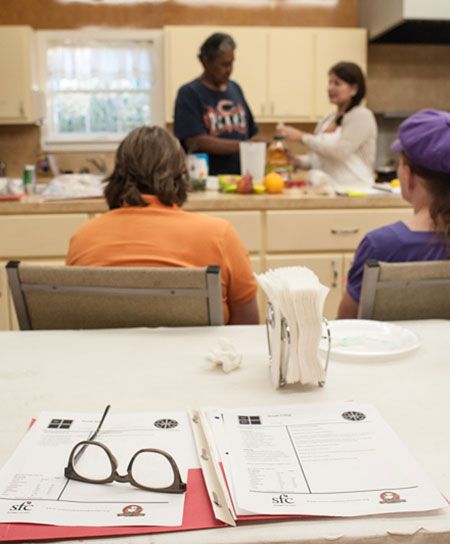In March, SFC’s The Happy Kitchen/La Cocina Alegre® teamed up with Texas Oncology for a special class for Cancer Caregivers. Facilitated by an oncology doctor, a nutritionist and a cooking instructor, participants learned about current research and practices in cancer prevention, treatment and care, as well as cooking and meal planning strategies for meeting a patient’s nutritional needs in all stages of treatment and recovery.
Below are the recipes we made in class. They are easy to follow and either come together quickly or hold up well as leftovers. The ingredients and cooking methods in these recipes demonstrate four essential attributes of a cancer-fighting diet:
- Generally low glycemic
- Easily digested, promotes good digestion
- Nutrient dense
- Anti-inflammatory
If you want more information about our Cancer Caregiver classes or our 6-week series of classes for cancer survivors, please contact Molly Costigan at molly@sustainablefoodcenter.com.

